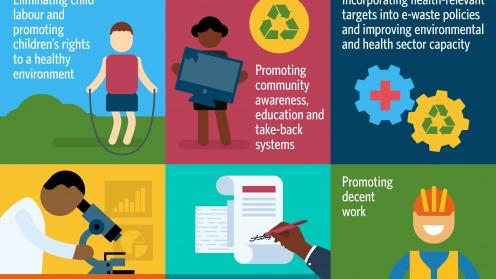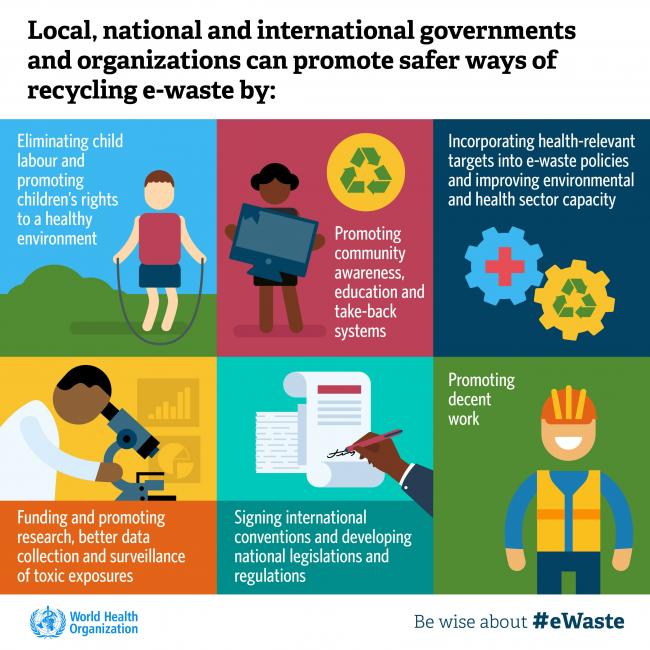About
Stressing that banning or regulating individual chemicals is insufficient, the event called for fundamental regulations that apply to all chemicals at the global level.
The Berlin Forum on Chemicals and Sustainability was preceded by a press conference launching the report on Children and Digital Dumpsites E-waste Exposure and Children’s Health.
Svenja Shulze, Federal Minister for the Environment, Nature Conservation and Nuclear Safety, Germany, and Maria Neira, Director of the Department of Public Health and Environment, World Health Organization (WHO), addressed the press conference.
Stephan Gabriel Haufe, Spokesperson, opened the press conference.
Schulze remarked that the sound management of chemicals is a question of justice as the poorest and most vulnerable are the worst affected by environmental pollution. Noting that Germany and Europe as a whole have a strict framework and requirements for producing and using chemicals, she highlighted this is not sufficient to protect the environment because chemical production, use, and damage are transboundary. She said chemical safety can only be ensured through global efforts.
Schulze called for the labeling of chemicals and chemicals-based products with universally understood warnings, symbols, and safety information. She noted while the international community has agreed on the Globally Harmonized System of Classifying and Labelling Chemicals, it is not being implemented by all countries.
She said the Berlin Forum on Chemicals aims to send a clear signal on the need to address the global chemicals crisis. Stressing that banning or regulating individual chemicals is insufficient, she called for fundamental regulations that apply to all chemicals at the global level.
Schulze also announced an additional EUR 1 million contribution to the UNEP Special Programme.
Neira said the production of electrical and electronic waste (e-waste) is growing annually at a fast rate, with about 57 million tons of e-waste produced in 2019. She highlighted the poor disposal and management of these wastes, saying that children and women, especially pregnant women, are adversely impacted by the informal collection and disposal of e-waste.
She presented the “Children and digital dumpsites: E-waste exposure and child health” report, which aims to raise awareness of the problem and provoke greater action. She called for changes in legislation to address e-waste, and for better implementation of such legislation, where they exist. She, therefore, urged countries to ratify the chemicals conventions, develop national policies, and ban the use of hazardous chemicals.
In response to the opening addresses, the media raised questions related to repair, exports to developing countries, and alternative livelihoods for people reliant on informal e-waste recycling.
Schulze outlined German and EU-level requirements for devices to be repairable and for take-back schemes, but she stressed the global nature of the problem. She stated the need for global awareness raising on the need for sound chemicals and e-waste management and for implementing safe e-waste recycling programmes. Schulze also pointed to a BMZ project, which provided training on the safe handling of e-waste to informal recyclers in Ghana.
Neira highlighted that the WHO e-waste report “puts the health argument on the table.” She stressed that discussions about repair, reuse, and recycling are also conversations about the health of adults and children, not only the environment. Neira drew attention to the report’s recommendation for regulated recycling facilities where people can safely generate income.
Funding for Earth Negotiations Bulletin coverage of this event has been provided by the German Federal Ministry for the Environment, Nature Conservation and Nuclear Safety (BMU).


